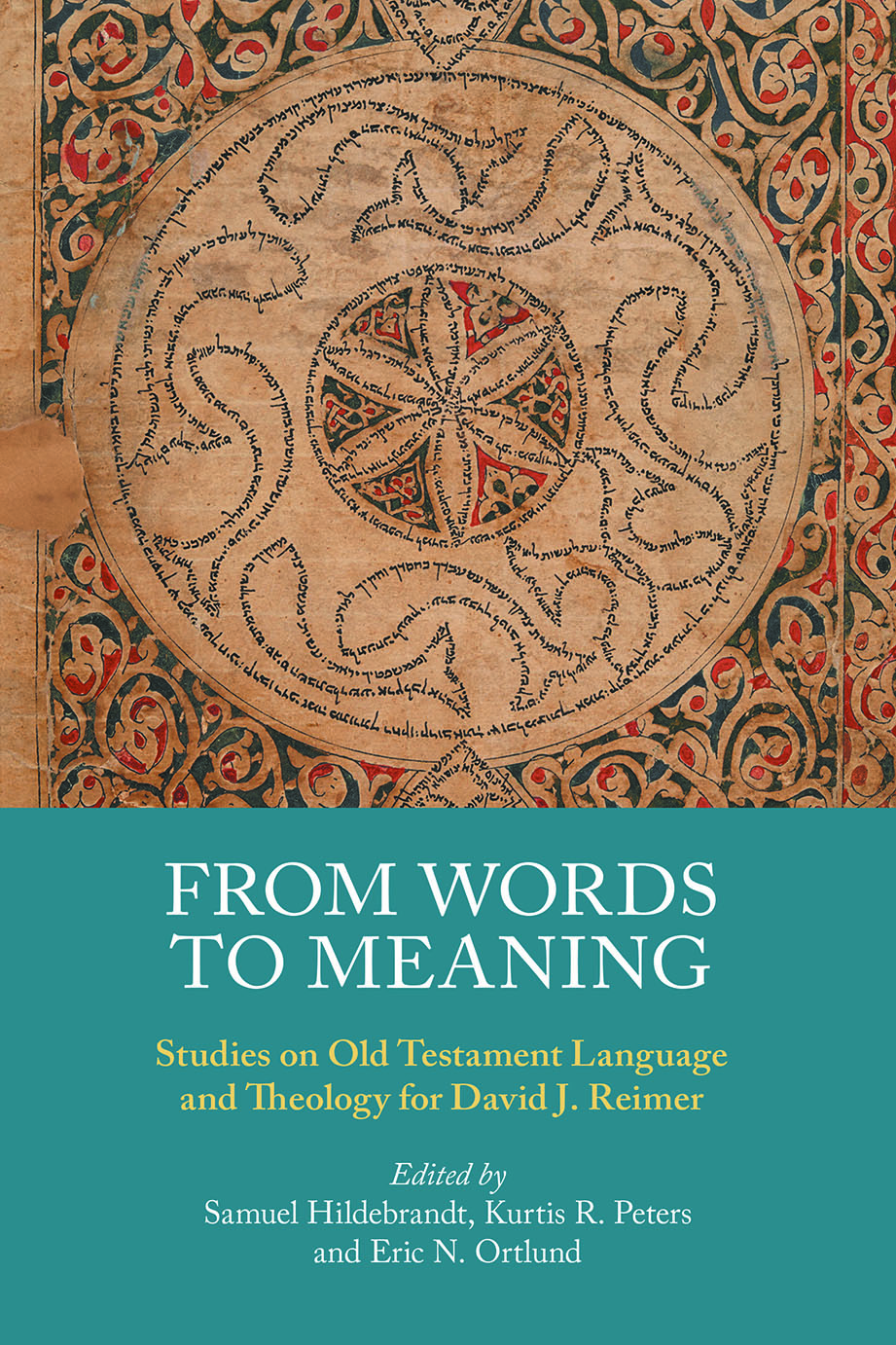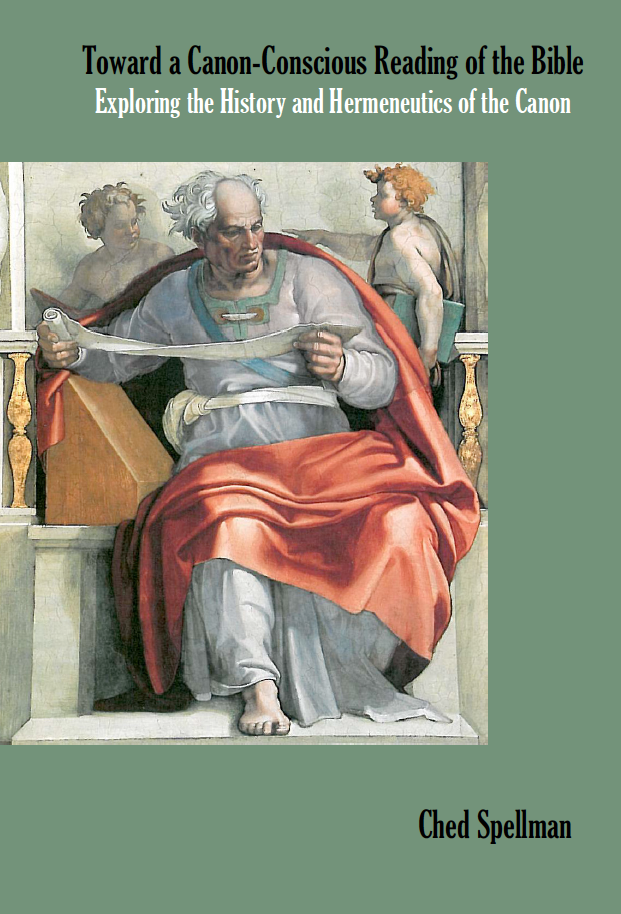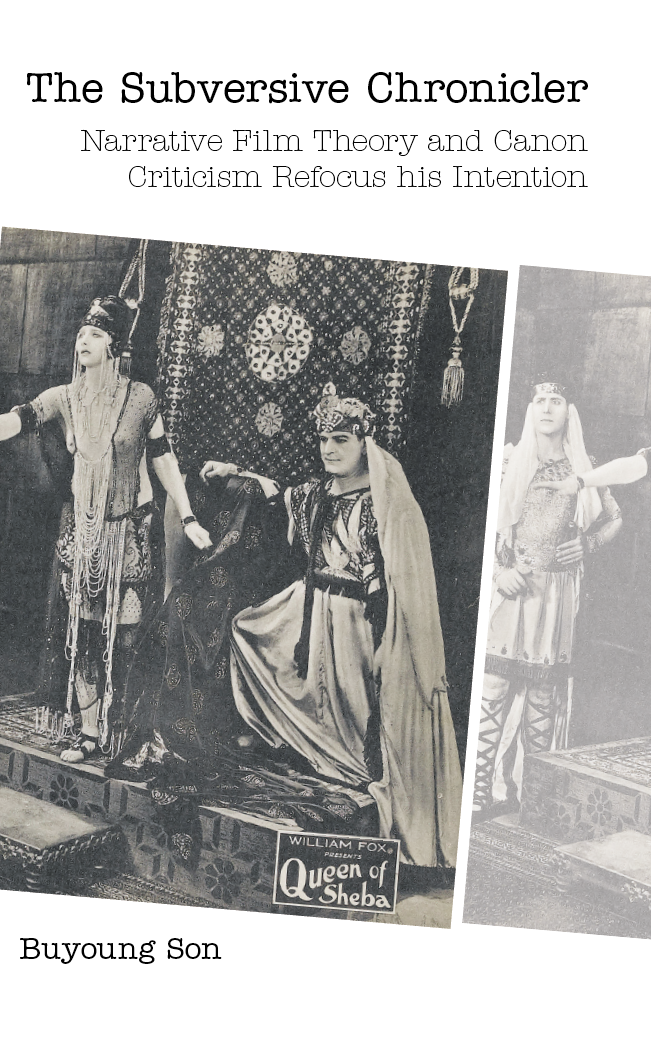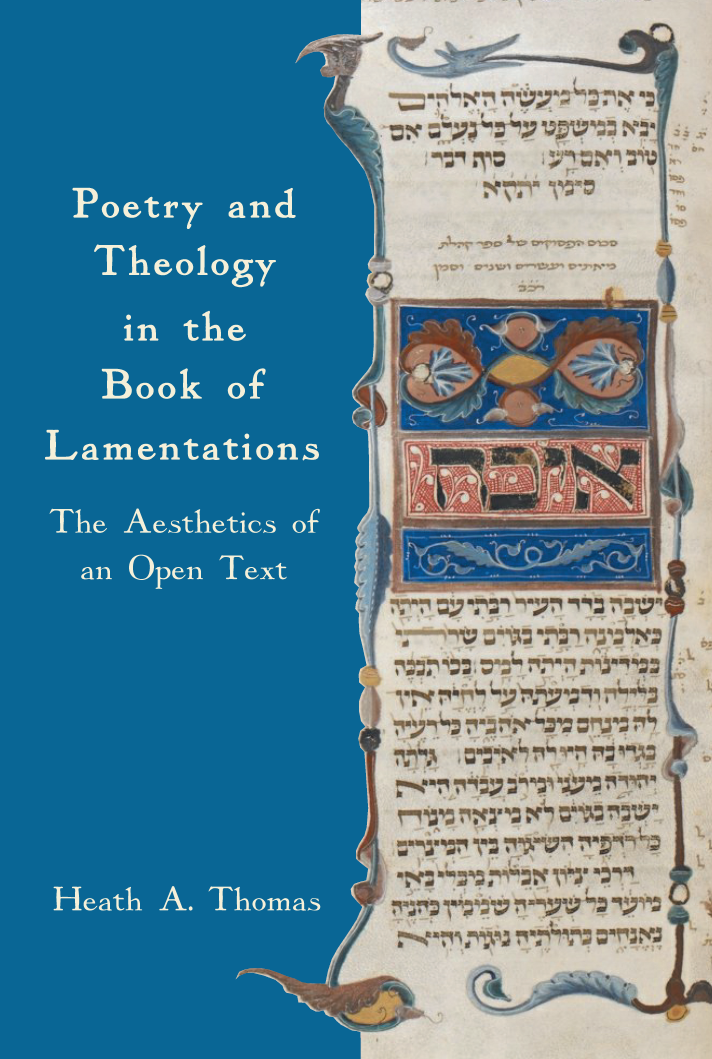From Words to Meaning: Studies on Old Testament Language and Theology for David J. Reimer
Published: Dec 2021
£60.00
David J. Reimer, to whom this volume is dedicated, has taught over twenty years at New College in Edinburgh. During this time, he has published and supervised many projects in the areas of Hebrew language study and Old Testament theology. These two disciplines often stay each in their own territory. As a token of recognition to David's scholarship, From Words to Meaning is designed to bridge this gap and to demonstrate afresh how speaking theologically about the Old Testament is enriched when it focuses on how these ancient texts communicate their message.
With its analysis of selected literary aspects, words, and theological questions, the volume contributes to current methodological discussions in both disciplines. Each of its twelve essays provides a case study that models the crossover between theology and language study. Alongside up-to-date discussions about Bible translation and biblical theology, the volume sheds new light on old questions, such as resurrection and Christology in the Old Testament. Inasmuch as all of these items are established topics in Old Testament theology, From Words to Meaning highlights time and again how close attention to Hebrew language results in a more nuanced understanding. This holds true especially for the many exercises of lexical semantics and pragmatics that are included in the volume. Readers will benefit from the careful study of the words 'to save' and 'glory', but will also gain fresh insights into the rhetoric of David's tears, Hosea's culinary metaphors, and Jeremiah's speech quotation.
The combination of well-established writers and emerging new voices results in a rounded sample of how we may move 'from words to meaning'. With its expertise and methodological orientation, the volume is an excellent resource for all scholars who are interested in the interplay of theology and language in the field of Old Testament studies.
From Words to Meaning: Studies on Old Testament Language and Theology for David J. Reimer
£60.00
David J. Reimer, to whom this volume is dedicated, has taught over twenty years at New College in Edinburgh. During this time, he has published and supervised many projects in the areas of Hebrew language study and Old Testament theology. These two disciplines often stay each in their own territory. As a token of recognition to David's scholarship, From Words to Meaning is designed to bridge this gap and to demonstrate afresh how speaking theologically about the Old Testament is enriched when it focuses on how these ancient texts communicate their message.
With its analysis of selected literary aspects, words, and theological questions, the volume contributes to current methodological discussions in both disciplines. Each of its twelve essays provides a case study that models the crossover between theology and language study. Alongside up-to-date discussions about Bible translation and biblical theology, the volume sheds new light on old questions, such as resurrection and Christology in the Old Testament. Inasmuch as all of these items are established topics in Old Testament theology, From Words to Meaning highlights time and again how close attention to Hebrew language results in a more nuanced understanding. This holds true especially for the many exercises of lexical semantics and pragmatics that are included in the volume. Readers will benefit from the careful study of the words 'to save' and 'glory', but will also gain fresh insights into the rhetoric of David's tears, Hosea's culinary metaphors, and Jeremiah's speech quotation.
The combination of well-established writers and emerging new voices results in a rounded sample of how we may move 'from words to meaning'. With its expertise and methodological orientation, the volume is an excellent resource for all scholars who are interested in the interplay of theology and language in the field of Old Testament studies.
Toward a Canon-Conscious Reading of the Bible: Exploring the History and Hermeneutics of the Canon
Published: Mar 2020
Price range: £22.00 through £70.00
Two distinct questions about the canon of the Bible can be raised: (1) How did the biblical canon come to be?, and (2) What effect does that canon have on its readers? The former is a historical question about the formation of the biblical canon; the latter is a hermeneutical question about the function of the biblical canon. Though these questions have often been pursued in virtual isolation from one another, Spellman argues that there are considerable gains from observing the interconnections between the two lines of inquiry.
On the historical question of the origin of the canon, Spellman asks, Is the shape of this collection an accident of history or a result of intelligent design? He concludes that canon-consciousness played an important role in the formation of the canon, even impinging on the work of the biblical authors themselves. On the hermeneutical question, the communities of readers of the Bible may also be shown to have been directed by their own canon-consciousness, using it as a guide in their interpretative task.
In this interdisciplinary work, Spellman marshals historical, theological and hermeneutical resources in order to paint a picture of how the concept of canon can enrich reading communities of today.
Toward a Canon-Conscious Reading of the Bible: Exploring the History and Hermeneutics of the Canon
Price range: £22.00 through £70.00
Two distinct questions about the canon of the Bible can be raised: (1) How did the biblical canon come to be?, and (2) What effect does that canon have on its readers? The former is a historical question about the formation of the biblical canon; the latter is a hermeneutical question about the function of the biblical canon. Though these questions have often been pursued in virtual isolation from one another, Spellman argues that there are considerable gains from observing the interconnections between the two lines of inquiry.
On the historical question of the origin of the canon, Spellman asks, Is the shape of this collection an accident of history or a result of intelligent design? He concludes that canon-consciousness played an important role in the formation of the canon, even impinging on the work of the biblical authors themselves. On the hermeneutical question, the communities of readers of the Bible may also be shown to have been directed by their own canon-consciousness, using it as a guide in their interpretative task.
In this interdisciplinary work, Spellman marshals historical, theological and hermeneutical resources in order to paint a picture of how the concept of canon can enrich reading communities of today.
The Subversive Chronicler: Narrative Film Theory and Canon Criticism Refocus his Intention
Published: Nov 2019
£55.00
In 1 and 2 Chronicles, commentators have long noted a pattern of retributive justice whereby kings who comply with Yahweh's will are rewarded with long life and honourable burial, whereas those who do not are disgraced. However, another pattern significantly emerges from a group of kings whose careers display an unexpected reversal. No convincing consensus has yet emerged to explain this reversal pattern.
By exploring and adopting the insights of narrative film theory, particularly of cognitive film semiotics, into the effects of macro-repetition, Son uncovers the implications of these unexpected reversals. As the reversal pattern is interwoven with the retributive pattern, the narrative emerges as a falsifying narration, provoking a deep scepticism about the conventional view of retribution theology.
Deleuzian film theory offers a crucial insight into how this falsifying narration works. The reversal pattern has a destabilizing effect, which suggests that the Chronicler's theological outlook is more nuanced than that of Samuel —Kings, or perhaps even frankly subversive of it. From a canonical perspective, furthermore, the presence of the Chronicler's work in the Ketuvim points to its potential function as a subtle theological readjustment in the postexilic Jewish community.
The Subversive Chronicler is then a challenge to the Chronicler's theology as it is commonly understood and also as a refocusing of its difference from the historiography of Samuel —Kings.
The Subversive Chronicler: Narrative Film Theory and Canon Criticism Refocus his Intention
£55.00
In 1 and 2 Chronicles, commentators have long noted a pattern of retributive justice whereby kings who comply with Yahweh's will are rewarded with long life and honourable burial, whereas those who do not are disgraced. However, another pattern significantly emerges from a group of kings whose careers display an unexpected reversal. No convincing consensus has yet emerged to explain this reversal pattern.
By exploring and adopting the insights of narrative film theory, particularly of cognitive film semiotics, into the effects of macro-repetition, Son uncovers the implications of these unexpected reversals. As the reversal pattern is interwoven with the retributive pattern, the narrative emerges as a falsifying narration, provoking a deep scepticism about the conventional view of retribution theology.
Deleuzian film theory offers a crucial insight into how this falsifying narration works. The reversal pattern has a destabilizing effect, which suggests that the Chronicler's theological outlook is more nuanced than that of Samuel —Kings, or perhaps even frankly subversive of it. From a canonical perspective, furthermore, the presence of the Chronicler's work in the Ketuvim points to its potential function as a subtle theological readjustment in the postexilic Jewish community.
The Subversive Chronicler is then a challenge to the Chronicler's theology as it is commonly understood and also as a refocusing of its difference from the historiography of Samuel —Kings.
From Judah to Judaea: Socio-Economic Structures and Processes in the Persian Period
Published: May 2013
Price range: £18.50 through £50.00
It has long been recognized that the Persian period is crucial to the history of the formation of the biblical corpora. The essays presented in this volume explore this critically important era, reconstructing the socio-economic shifts that took place as well as the religio-theological environment of the Judean community and its neighbours. The topics of this volume, sociological, archaeological and theological, include: ethnicities and administration in Persian-era Palestine (Yigal); the historical origin of the concept of the piety of the poor at Qumran (Ro); the development of the theological concept of Yhwh's punitive justice (Ro); social, cultural and demographic transformations in Persian-period Judah (Faust); changes in Judah and its neighbouring provinces in the fourth century BCE (Fantalkin and Tal); some Greek views of the Persian empire (Sano). The papers collected in this volume were presented at an international conference held at International Christian University (ICU) in Tokyo, February 17 —19, 2011, a testimony to the fruitfulness of this unusual Asian —Israeli scholarly dialogue.
From Judah to Judaea: Socio-Economic Structures and Processes in the Persian Period
Price range: £18.50 through £50.00
It has long been recognized that the Persian period is crucial to the history of the formation of the biblical corpora. The essays presented in this volume explore this critically important era, reconstructing the socio-economic shifts that took place as well as the religio-theological environment of the Judean community and its neighbours. The topics of this volume, sociological, archaeological and theological, include: ethnicities and administration in Persian-era Palestine (Yigal); the historical origin of the concept of the piety of the poor at Qumran (Ro); the development of the theological concept of Yhwh's punitive justice (Ro); social, cultural and demographic transformations in Persian-period Judah (Faust); changes in Judah and its neighbouring provinces in the fourth century BCE (Fantalkin and Tal); some Greek views of the Persian empire (Sano). The papers collected in this volume were presented at an international conference held at International Christian University (ICU) in Tokyo, February 17 —19, 2011, a testimony to the fruitfulness of this unusual Asian —Israeli scholarly dialogue.
Poetry and Theology in the Book of Lamentations: The Aesthetics of an Open Text
Published: Mar 2013
£60.00
The book of Lamentations is a challenge to its readers. Its ambiguous theology, strident protestations against its deity, and haunting imagery confound interpreters. This monograph engages the enigma of Lamentations by assessing its theology. It does so, however, neither by tracing a single theological perspective through the book nor by reconstructing the history of the composition of the book. Rather, Heath Thomas assesses the poetry of Lamentations by offering a close analysis of each poem in the book. He reconsiders the acrostic as the foundational structure for the poetry, reads the book as an intentionally composed whole, and assesses the pervasive use of repetition, metaphor, and allusion.
For the first time in the field, the analysis here is grounded on the insights of the Italian semiotician Umberto Eco. Drawing upon Eco's distinction between 'open' and 'closed' textualities, Thomas argues that Lamentations represents a distinctively 'open' text, one that presents its reader with a myriad of surprising avenues to interpret the poetry. This distinctive approach avoids a polarization in the portrait of God in Lamentations, arguing that its poetry neither justifies God outright nor does it exonerate God's people in the exilic age. Rather, it enables these theological visions to interrelate with each another, inviting the reader to make sense of the interaction.
The ambiguous theological vision of Lamentations, then, is not a problem that the reader is intended to overcome but an integral feature in the construction of meaning. This original monograph offers a new perspective on how the poetry informs our appreciation of theological thought in the exilic age.
Poetry and Theology in the Book of Lamentations: The Aesthetics of an Open Text
£60.00
The book of Lamentations is a challenge to its readers. Its ambiguous theology, strident protestations against its deity, and haunting imagery confound interpreters. This monograph engages the enigma of Lamentations by assessing its theology. It does so, however, neither by tracing a single theological perspective through the book nor by reconstructing the history of the composition of the book. Rather, Heath Thomas assesses the poetry of Lamentations by offering a close analysis of each poem in the book. He reconsiders the acrostic as the foundational structure for the poetry, reads the book as an intentionally composed whole, and assesses the pervasive use of repetition, metaphor, and allusion.
For the first time in the field, the analysis here is grounded on the insights of the Italian semiotician Umberto Eco. Drawing upon Eco's distinction between 'open' and 'closed' textualities, Thomas argues that Lamentations represents a distinctively 'open' text, one that presents its reader with a myriad of surprising avenues to interpret the poetry. This distinctive approach avoids a polarization in the portrait of God in Lamentations, arguing that its poetry neither justifies God outright nor does it exonerate God's people in the exilic age. Rather, it enables these theological visions to interrelate with each another, inviting the reader to make sense of the interaction.
The ambiguous theological vision of Lamentations, then, is not a problem that the reader is intended to overcome but an integral feature in the construction of meaning. This original monograph offers a new perspective on how the poetry informs our appreciation of theological thought in the exilic age.





